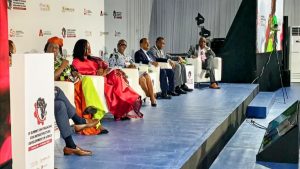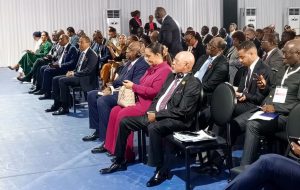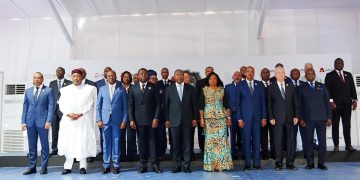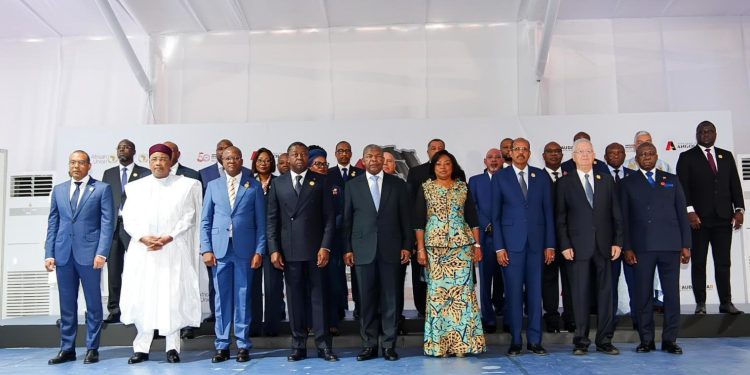Luanda — President Yoweri Kaguta Museveni has urged African nations to mobilise domestic revenues to finance infrastructure development.
The President’s remarks were delivered by the Minister of Foreign Affairs, Hon. Gen Odongo Jeje Abubakhar, at the 3rd Summit on Financing for Infrastructure Development in Africa, in the Angolan capital, Luanda.
The Summit, hosted by President Joao Manuel Gonçalves Lourenço of Angola in his capacity as Chairperson of the African Union (AU), brought together Heads of State, regional economic bodies, private sector leaders, and development partners to assess the state of infrastructure on the continent and address the financing gap impeding progress toward the Sustainable Development Goals (SDGs) and Africa’s Agenda 2063. The meeting runs from October 28th to 31st, 2025.
Co-hosted by the African Union Commission (AUC) and the African Union Development Agency (AUDA-NEPAD) under the theme “Capital, Corridors, Trade: Investing in Infrastructure for the AfCFTA and Shared Prosperity,” the Summit has attracted investors and development partners to explore ways to accelerate infrastructure financing across Africa.
Deliberations are focusing on strategic investment opportunities aligned with the Programme for Infrastructure Development in Africa (PIDA) — the AU’s blueprint for regional and continental connectivity. Key priority areas include cross-border transport corridors, energy access, digital transformation, and climate-resilient cities.

Delivering President Museveni’s address, Minister Odongo underscored the need for African countries to prioritise infrastructure projects that promote regional integration, facilitate intra-African trade, and enhance the free movement of people and goods.
He cited Uganda’s hydropower generation capacity of 2,034 MW, part of which is exported to neighbouring countries, the East African Crude Oil Pipeline (EACOP), and ongoing efforts to link Uganda and Kenya through the Standard Gauge Railway (SGR) as examples of critical cross-border projects that advance the spirit of the African Continental Free Trade Area (AfCFTA).
President Museveni emphasised that the continent’s abundant natural resources, if effectively harnessed and processed locally, could provide sustainable financing for infrastructure needs.

Referencing Uganda’s strategy to prioritise infrastructure investment using oil revenues, President Museveni called for financial sovereignty across Africa, arguing that the $180 billion annual infrastructure financing gap (as estimated by the African Development Bank) could be closed if African nations focus on value addition to their natural resources before export.
The Summit also featured addresses from President Faure Gnassingbé of Togo, Mahmoud Ali Youssef representing the African Union Commission, as well as Vice Presidents, Prime Ministers, and Ministers from various African countries.
Building on the momentum of the 2nd Dakar Summit held in 2023, the Luanda meeting has centred discussions on the transport, energy, ICT, and water sectors. International financial institutions and private investors are engaging in sessions on innovative financing mechanisms, including public-private partnerships (PPPs), to unlock new sources of capital for infrastructure projects.
The outcomes of the Summit will be captured in The Luanda Declaration, to be adopted by participating Heads of State at the conclusion of the event.











